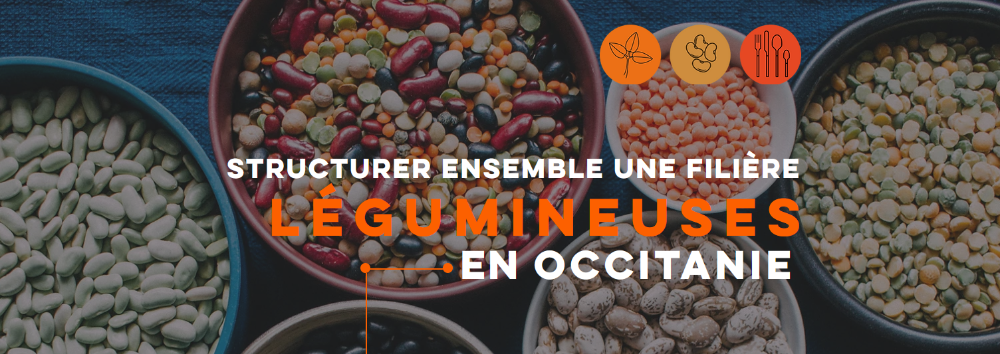FILEG begins its operational phase
FILEG begins its operational phase
How can we make the most of pulses, whose consumption has been increasing steadily in recent years? Soybeans, lentils, protein peas, faba beans and chickpeas are sources of plant proteins and can be used to diversify crops while reducing inputs and nitrogen input.
To develop them, Terres Inovia, with many partners, is carrying the project to create a real sector dedicated to these crops in Occitania for human and animal food.

Objective: a localized industry by 2030
FILEG has been supported by the Institute since 2017. The challenge? To create a regional and federating project for a seed legume industry in Occitania that meets the major challenges of food and agro-ecological transition.
In concrete terms, the objective is to have a territorial, structured and sustainable (in terms of the environment as well as in economic and social terms) sector for human and animal food in 2030, creating added value and distributed equitably among all the players in the sector, whether they are producers, collectors and processors... without forgetting to offer a great dynamic of collectively financed R&D (public-private).
An association structured around numerous partners
The first two stages of the project allowed us to study the feasibility of the project, and then to create a collective project with many partners. Since February 28, 2022, FILEG has become an association under the French law of 1901, composed of about 80 members.
Who are they? Actors of the agrifood industry, whether they are producers (in conventional agriculture but also in organic), processors, distributors of animal and human food and, at the end of the chain, consumers. In March 2023, it will hold its first general assembly to mark the completion of its first year of legal existence.
Five axes structure the activity:
Upstream, the objective is to ensure the rise in competence of advisers and farmers around the seed legumes by impelling a collective dynamic of acquisition of references and transfer of knowledge and agricultural practices;
Two axes downstream of production to create and animate communities of experts oriented towards food and feed;
Two transversal axes aiming at building an economic observatory on the link between upstream and downstream on the one hand, and promoting legumes and FILEG on the other.
First concrete actions
In the field, a technical committee led by Terres Inovia, and gathering FILEG members, plans a number of experimental devices that can be shared and mutualized as well as dedicated transfer actions.
On the economic side, two publications detailing economic data on areas, yields, gross margins and markets will be published in early 2023. These are eagerly awaited by the association's members.
Downstream, several studies are underway on the supply of collective and commercial catering, the role of pulses in regional food projects (PAT), the qualification of their suitability for processing (appertization), as well as on the added value of the protein autonomy of farms.
Finally, as far as communication is concerned, FILEG is regularly present at professional and public fairs to promote the regional sector and pulses in Occitania.
A board of directors based on three colleges
Like the general governance of the association, it is divided into three colleges:
-Breeders, producers, collectors and technicians;
-Packers and processors;
-Distributors, end users and consumer representatives.
The president is systematically from the first college dedicated to agricultural production. Edouard Cavalier is the 1st President of the association. He is a chickpea producer in the Gard region.